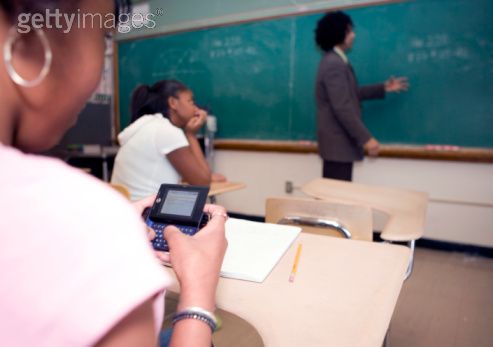Dr. Nii Moi Thompson must have been having a terrible day when he granted a radio interview to comment on the decision by the Ghana Education Service to ban the use of mobile phones on secondary school campuses.
His thoughts on the matter seemed distressingly porous.
He said the ban was unnecessary and amounted to a deliberate failure to “take advantage of technology”. He suggests that instead of an outright ban, the GES must encourage authorities in the various secondary schools to “regulate” the use of mobile phones by, for example, getting the students to be “checking in” their phones in order not to disrupt academic work.
- Advertisement -
Those suggestions coming from a man with a doctorate degree, threw me into a labyrinth of depressing disappointment.
Because of my limited education, I am quite wary of arguing with people with PhD holders. I never thought that there would be a time when I’d dare challenge someone like Dr. Nii Moi Thompson. But on this issue, I think I just might as well give it a shot.
The Ghana Education Service hardly takes sensible, well thought-out decisions. But on this issue, the service is right. And people like Dr. Nii Moi Thompson are dead wrong.
I have heard some people put up the spurious argument that secondary school students should be allowed to use mobile phones on campus because they need to keep in touch with their parents and the mobile phone is the best way to do that.
Before mobile phones, when the likes of Dr. Nii Moi Thompson were in secondary school, how did they communicate with their parents and guardians? Through letters and public pay phones. That’s what I did. The secondary school students of today should do the same.
Mobiles phones cannot be allowed on campuses because they are an unnecessary distraction. Imagine classes are in session and suddenly a phone rings. What’s the owner to do? Pick up the call and ask to be excused from the class?
Imagine that it’s lights out in the dormitory and whiles almost everyone is trying to catch some sleep, some few students decide to take advantage of the technology of free-night calls. You can be sure that those free night calls will not be to their parents.
Finally, if all students were allowed to bring phones to school, how are they going to recharge their batteries, at what cost and who picks up the bill? I can imagine the scramble for power sockets and I can also see parents fuming at the suggestion that they should contribute a little more money towards paying off the electricity bills.
Dr. Nii Moi Thompson’s suggestions that there should be a mechanism to allow students to bring phones to school and check them in whiles classes are in session is untenable. It won’t work. School authorities cannot (and should never) be compelled to use scarce resources to build phone check-in stalls and hire people manage them – all in an effort to it possible for students to take advantage of technology to engage in cyber-truancy – they are in class, but they are also on facebook.
When I was in secondary school, we were barred from bringing radio cassette/CD players to school. They were also useful technologies we could have argued helped us to keep abreast with the latest news and information. But we didn’t. Those who dared to bring radio sets to school were punished and the equipment seized. So the argument that banning mobile phones on secondary school campuses amounts to a technological deprivation is as weak as it is false.


